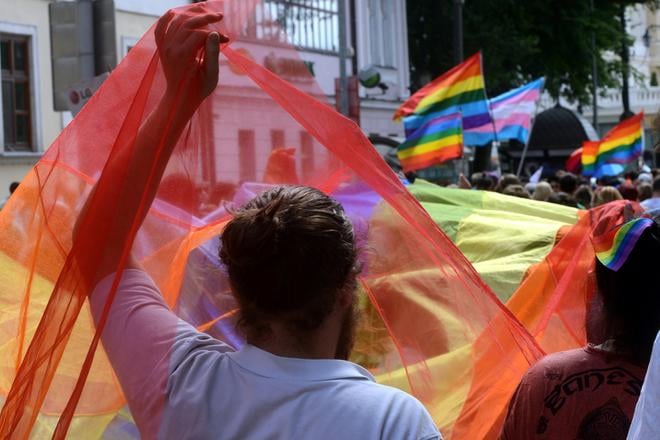Jakub Šanko, a Slovak citizen, and his Argentinian husband Marian Ruiz are facing a legal barrier before their relocation to Slovakia from South America.
Ruiz cannot obtain permanent residence because Slovak legislation, in particular the Family Act and the constitution, does not recognise gay marriage.
The couple wedded in Argentina.
“If they were a heterosexual couple, they would have had permanent residence approved a long time ago,” Ruiz’s lawyer Peter Kubina told Aktuality.sk.
The Argentinian has decided to turn to a Slovak district court.
Constitutional Court’s homework
Former public defender of human rights, Mária Patakyová, turned to the Constitutional Court in March 2022 in the same matter. The case concerns a different gay couple.
Patakyová asked the court to review the law on the residence of foreigners that, she said, discriminates foreigners based on sexual orientation.
A foreigner who is gay and has lived with their Slovak partner in a marriage in a third country for a long time is unable to obtain permanent residence because they cannot meet the conditions set in the Family Act, which defines marriage as a bond between a male and a female.
The constitution includes the same definition.
“Knowing that the Slovak constitution defines marriage as a union between a man and a woman, we expected complications from the beginning,” the couple told Aktuality.sk, “What is sad is that our constitution does not reflect reality.”
The couple, which today reside in Argentina, have been battling against Slovak legislation since 2020, when Ruiz applied for permanent residence the first time. The Foreigners’ Police declined it.
Change might come at some point
Kubina emphasised that the European Convention on Human Rights is above Slovak laws. Slovakia ratified it in 1993.
Their lawyer went on to note that the European Court for Human Rights ruled on the same case as Ruiz’s in the past, supporting same-sex married couples.
Slovakia might thus be forced to change its law on the residence of foreigners in a way that would accept same-sex marriages between Slovaks and foreigners for the purpose of obtaining permanent residence.
The potential change would not lead to any changes in the Family Act.
Slovak courts have not yet ruled in any of the above-mentioned cases.
Another form of discrimination
Inakosť, an LGBT+ organisation, points out that Slovakia already approves the permanent residence of a foreigner in a same-sex marriage with a Slovak if another EU member state approved their permanent residence in the past.
It is another example of discrimination against same-sex married couples in which one of the partners is Slovak and has not lived in the EU thus far, the organisation told the website.
Slovakia has made no change in this regard.



 International same-sex married couples, in which one of the partners is Slovak, deal with a problem that affects their privacy and family life in Slovakia. (source: TASR - Štefan Puškáš)
International same-sex married couples, in which one of the partners is Slovak, deal with a problem that affects their privacy and family life in Slovakia. (source: TASR - Štefan Puškáš)